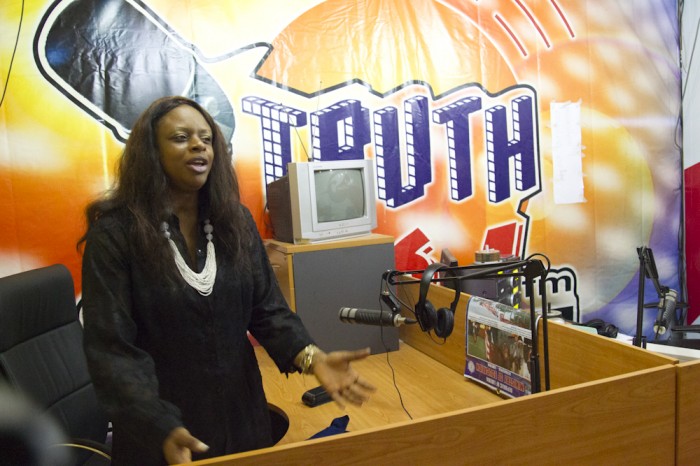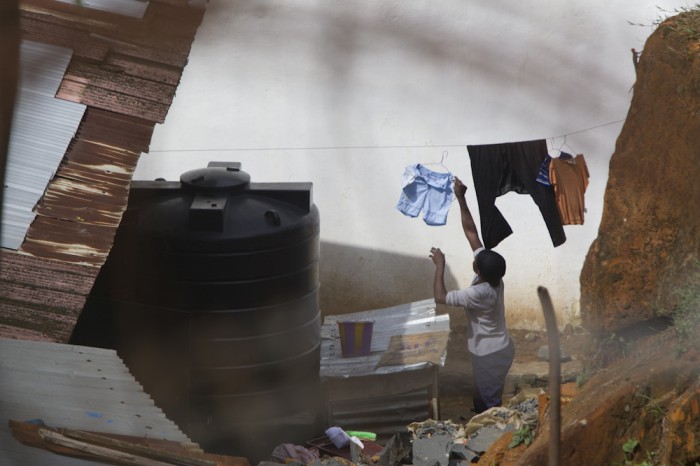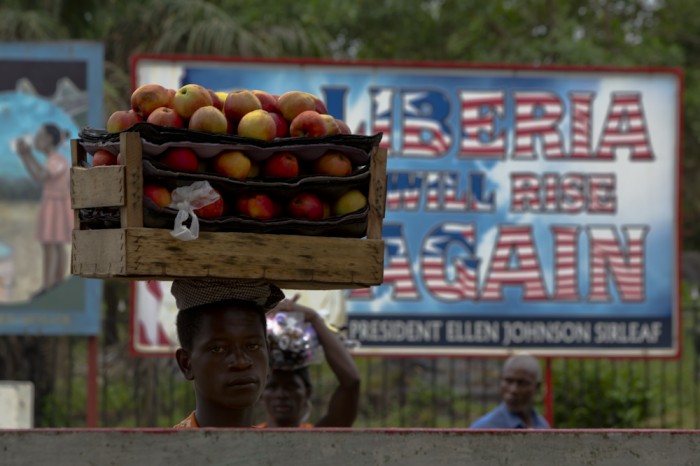I am definitely not in Kansas. Liberia is a strange mix of African and European influences in society and culture that for all intents and purposes is closest to being American. With a flag that is almost an exact duplicate of “Old Glory,” the red and white stripes and the blue field in the upper left corner, it would have made Betsy Ross proud of the likeness. A single white star adorns the blue field instead of the fifty that represent our state. Is Liberia the 51st state, should it be?
After all Liberia was founded by American citizens after the civil war. Yes, glad you noticed, I said citizens and not ex-slaves. The Emancipation Proclamation took care of that small detail — all former slaves were and are, citizens of the United States. It was their bondage that ended, not their citizenship. The “Back to Africa Movement” was just a few of the critics’ way of ridding themselves of the “problem of what to do with the Negro.”
I will delve more into that topic on another day.

So I find myself surrounded by descendants of American ex-pats who left their homeland to find a place where they could live without being enslaved or oppressed, who are now struggling to survive after enduring their own 20-year civil war. The descendants of the founders of Liberia were revolted upon by those they had oppressed for so long, the indigenous people of this region in Africa. How ironic, how sad, that they had learned so little. I could have a relative lurking among the masses unbeknownst to him or me.
One man whom I photographed, outside the Exclusive Supermarket, had lost the lower part of his leg. He asked me for money to help him. All eyes near us were now looking in our direction. “Can you help me my brother?” I declined. All the other people along the busy sidewalk were waiting to see if I would give him money; they would ask, too, should I have reached into my pocket for the cash. Was I his brother? My skin tone told him I was not white, and that even being European or American, I could still have come from this land or be a kin to someone that does.
A law student at the University of Liberia’s Louis Arthur Grimes Law School asked if I was going to move to and live in Monrovia. I politely said no, that I was just visiting. Monrovia, like the entire country of Liberia, shows the signs of being pock-marked with gunfire, cannons still sit in batteries on hills. Liberians are not running for cover today; there is no gunfire to be heard. Most Liberians want to rid themselves of the corrupted government officials who have embedded themselves into the fabric of policy and tradition.



